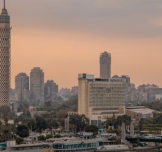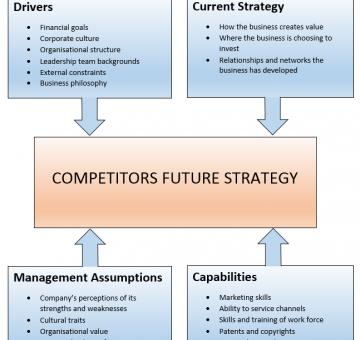Egypt’s Economic Balancing Act: How Stabilization Is Redefining the Country’s Startup Future

In a climate long defined by currency shocks, inflation surges, and fiscal constraints, Egypt’s macroeconomic outlook is entering a new cautiously optimistic phase. Signs of recovery are emerging in 2025, marked by cooling inflation, stabilizing reserves, and a revival of investor sentiment. But beneath the surface, the story runs deeper: Egypt isn’t just stabilizing its economy — it’s recalibrating the very foundation upon which its entrepreneurial and innovation ecosystem stands.
Recent figures show that the first half of 2025 (H1 2025) recorded nearly $228 million in venture capital inflows, signaling a rebound in investor confidence after years of uncertainty. And while foreign direct investment (FDI) remains heavily influenced by mega deals like Ras El-Hekma, the growing share of private-sector participation (63% of total investments) points to a structural shift one where startups, MSMEs, and private enterprises are reclaiming the narrative of growth.
Stabilizing Amid the Storm: Inflation, Debt, and Policy Discipline
The Egyptian economy has been navigating one of its most complex reform landscapes in decades. Inflation, which once soared beyond 30% in 2023, declined sharply to 12.8% by February 2025, driven by decisive monetary tightening and the Central Bank of Egypt’s commitment to exchange rate liberalization.
Behind the numbers lies a difficult balancing act. The CBE’s Monetary Policy Committee maintained interest rates at historically high levels 27.25% for deposits and 28.25% for lending to anchor inflation expectations while protecting currency stability. This move underscores a broader strategy: accept short-term pain for long-term predictability.
Meanwhile, Egypt’s GDP expanded 3.5% in Q3 2024, with full-year growth projected at 4% for FY2024/25. That growth is moderate, but meaningful a sign that the reform-driven slowdown might be transitioning into sustainable expansion.
Still, fiscal vulnerabilities persist. Public debt hovers near 89.6% of GDP, and the budget deficit widened to 7.2% indicators that macroeconomic prudence remains fragile. Yet for the startup ecosystem, stability even if imperfect is the most valuable currency.
Reserves, Reforms, and Renewed Confidence
One of the quiet successes of 2025 has been Egypt’s foreign reserve position, which grew by $13 billion since January 2024, reaching adequacy levels under the IMF’s reserve metrics. This cushion has been instrumental in restoring market confidence, enabling smoother FX operations, and eliminating the parallel currency market that had long distorted investment flows.
The ripple effect was immediate. Remittances jumped 82.7% year-on-year to a record $26.4 billion, while tourism surged by 25% in Q1 2025, generating nearly $15.3 billion in annual receipts. Together, these inflows have not only stabilized Egypt’s external position but also improved liquidity across the financial ecosystem indirectly fueling the revival of startup capital and venture activity.
Portfolio outflows and a 47.4% widening trade deficit remain red flags, but the trendline is shifting from crisis management to cautious rebuilding. Egypt’s story in 2025 is no longer one of volatility it’s one of gradual normalization.
Why This Macro Turnaround Matters for Startups
At first glance, Egypt’s macroeconomic turbulence seems detached from its entrepreneurial scene. But the relationship is direct and profound. When FX markets stabilize, founders can price products realistically, investors can hedge risk more confidently, and growth-stage startups can plan regional expansion without fearing sudden valuation shocks.
The $228 million in VC inflows in H1 2025 may seem modest compared to 2021’s highs, but in context, it represents renewed trust in Egypt’s private sector. Sectors like ICT, manufacturing, and green energy are drawing fresh capital not as speculative plays, but as part of Egypt’s broader reform-aligned industrial strategy.
If 2023 and 2024 were about surviving the storm, 2025 is shaping up to be about rebuilding the ecosystem’s fundamentals. For Egypt’s startups, this macroeconomic shift could mark the start of a new cycle one defined by sustainable growth, deeper institutional partnerships, and improved investor visibility.
The Reform Equation: From IMF Programs to Private-Led Growth
Egypt’s reform agenda, long anchored by IMF frameworks, is entering a pragmatic phase. Fiscal consolidation and FX flexibility are now paired with efforts to reduce state dominance and attract private capital.
The results are emerging slowly but meaningfully. The private sector’s 63% share of total investments in FY2024/25 is the highest in over a decade a structural change that repositions entrepreneurship as a macroeconomic engine, not a niche policy goal.
But this transition isn’t frictionless. Delays in privatization, continued dominance of state-owned entities, and limited access to affordable credit still weigh on smaller firms. The challenge for Egypt’s policymakers will be ensuring that macro stability translates into micro opportunity that every improvement in reserves, inflation, or fiscal balance finds its way into startup growth, job creation, and innovation capacity.
A New Economic Playbook for Egypt’s Next Chapter
Egypt’s macroeconomic trajectory in 2025 offers a glimpse of cautious renewal. The country is not yet out of the woods public debt remains high, trade imbalances linger, and the reform pace is uneven. Yet, in the broader narrative of Egypt’s economic evolution, this moment represents an inflection point.
Where the last decade was defined by reform promises, this one must be defined by execution and integration aligning macroeconomic stability with the realities of entrepreneurship and investment.
If Egypt sustains its current policy discipline while expanding private-led growth, it could unlock a new phase of ecosystem maturity one where startups not only survive policy cycles but thrive because of them.
Final Takeaway
Egypt’s economic story in 2025 is not about a perfect recovery it’s about strategic endurance. With inflation cooling, reserves strengthening, and investment sentiment tentatively returning, the foundation for a resilient entrepreneurial future is being laid.
The next chapter will depend on whether Egypt can turn macro stability into tangible opportunity transforming stabilization into innovation, and reform into real growth.
Because in today’s Egypt, stability itself is the new catalyst for entrepreneurship.





































































EgyptInnovate site is not responsible for the content of the comments